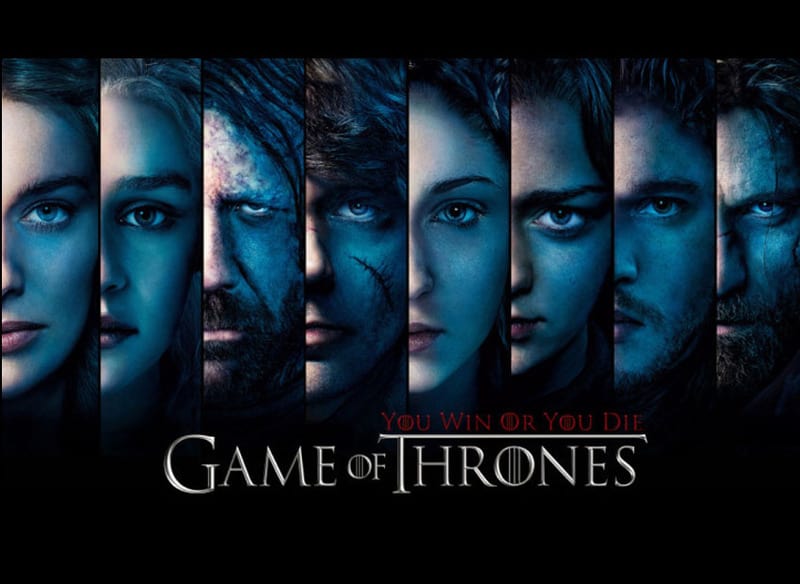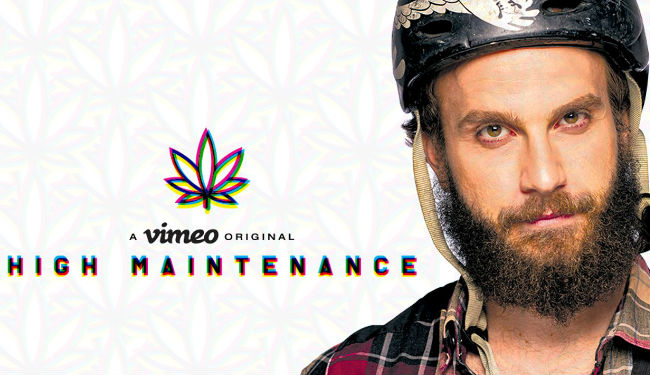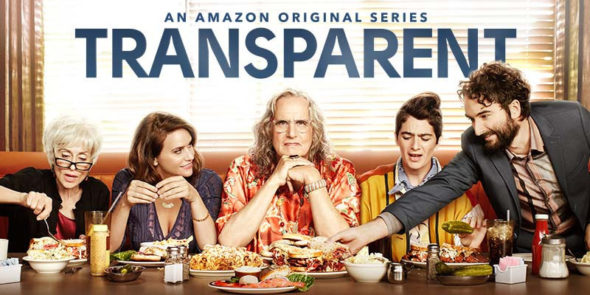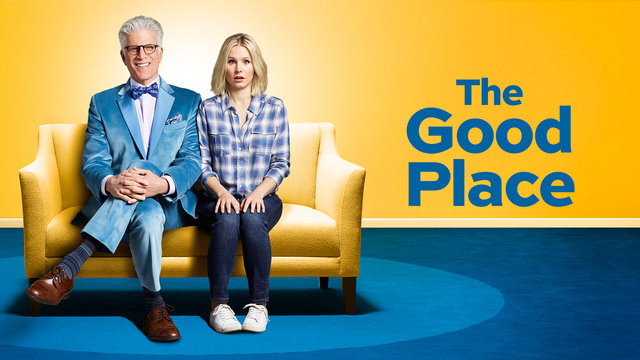- Black Mirror

Two seasons in, Black Mirror has etched itself as one of the bleakest show in recent memory but in its third season, it strays away from its established narrative territory and performs a balancing act between cutthroat social satire and a more hopeful depiction of a world gone wrong. Thanks to its creator Charlie Brooker’s observant eye, the show has elevated to a level of even more terrifying precision– almost feeling prophetic at times– while managing to instill a much needed sense of hope without verging on saccharine or forced sentiments. The varied styles and genres each episodes give the show the advantage of keeping each entry unique but also cohesive as far as the overarching theme goes. Black Mirror is one that dabbles in societies left unattended which, considering our very own, makes it a very important watch.
- Atlanta

Community’s alum Donald Glover’s venture to TV realm has given 2016 a portrait of black America that is equal parts everyday and fantastic. With Atlanta, Glover carves his intimate drama with humor that is as witty as it is strikingly humane, further bolstered by a terrific cast that feels at home with the material covering nuanced issues of race. It’s quietly political when it wants to be and Glover is just the right man for that kind of subtle yet powerful political display. The subdued direction contributes to the show’s own brand of dreamlike atmosphere which avoids the ordinary from becoming clichéd and captures the city of Atlanta dripping with personality almost as if it’s a character of its own. To say that Atlanta is revolutionary television isn’t enough to cover how great the show is; it is funny, depressing, joyful and more importantly, as real as a life of a black man can be.
- Game of Thrones

The epic fantasy has come a long way since its first airing in 2011, blood has been spilled and wars have been waged and yet much is to be known about the seven kingdoms. Thankfully, season 6 has finally moved past localized, individual machinations and into one central story line that aims to merge existing story arcs and hopefully tie up loose ends as the inevitable end nears. Through its 6 years of airing, if there’s one thing Game of Thrones has proved; that it’s mightily good in setting up a scene. The season finale alone is filled with great examples of this which saw many key players advancing their positions long at last. Like any other show nearing closure, Game of Thrones doubles its emphasis on character development and to do this, cutting off dead weight is a necessary step. The popularity of the show and its surge in viewership is sure to continue seeing as how the series shows no sign of holding the epic-ness back.
- The People vs OJ Simpson

Simply irresistible to watch from start to finish. The People v OJ Simpson has lots to unpack given the magnitude of the trial it centers itself on and bounces the focus back and forth between its large ensemble cast but as surprising as the many twists in the story, the show pulls all of it off in an excellent run of ten deftly created episodes. TPVOJS exercises control over its stretch and never loses the balance between showcasing the factual side of the story and the more emotional turn of events that clouded the trial to the extent of shaping its very outcome. The dense writing guarantees no dull moment makes its way to the screen and smartly copes with the heavily sensationalized drama by downplaying it to a volume that aims to keep the narrative grounded to the truth but nevertheless compelling, if not more so than the real thing. Explosive moments are guided with meticulous precision while the silent ones creep on the viewers with raw emotions and linger on even after the scene has played itself out.
- Search Party

If there’s one thing millennials are often jabbed at, it’s our supposed collective laziness cultivated by this so called culture of entitlement which on the surface, seems to be the sentiment of the show but fortunately, Search Party is not like any other show about millennial generation. At the center of it all is a disappearance that pushes 20-something, New Yorker Dory out of her millennial ennui and into a Nancy Drew-esque mystery-solving puzzle. Sure enough, her journey to finding a missing person morphs into a journey of self-discovery but one that avoids the usual trappings of shows about shallow people for it understands that, especially in the age of Facebook, it’s easy to mistake self-absorption for self-growth. With this, the show becomes a social satire and a modern mystery story, succeeding in both areas thanks to its impressive cast and sharp writing. In its pursuit of a hollow purpose, Search Party achieves a poignant look of what it means to live in the now.
- High Maintenance

In 2016, anthology format continues to flourish with High Maintenance as it tackles the life of a weed dealer and the lives of the people it provides service to. The many characters encountered throughout highlight the vibrant and often, dark cityscapes of urban life with kinetic grace. It’s a compelling collection of equally compelling individuals painted with emotional depth despite the shortage of its running time per episode. But as much as it is about private lives, High Maintenance also gives focus to the poignancy in trivial human interaction. The way our nameless pot dealer enters the scene and leaves as emphasis is given on his clients affords a feeling of connection in a sprawling world like New York where every second is a chaotic pace. The show is intimate in many ways but in its most intimate, throws emotional heavyweights even from the most banal of story lines and characters.
- Transparent

When Maura Pfefferman declared her gratitude for her family and her chosen family during her 70th birthday, it became clear that having a family is just half the problem; sometimes, family isn’t enough to secure yourself a piece of belongingness and at the crux of its third season, Transparent explores the family or the idea of such we choose for our own. It’s a choice that rarely comes but when it does, bears the heavy burden of choosing. Transparent is not one to shy away from the topic of identity, but this time around, it acknowledges the impact of identity to the family it’s a member to. Towards the end of the celebration, Maura requests that her children start calling her “mom” as she begins her transition but unbeknownst to her, destroying the patriarchy, whether symbolic or not, is not as easy as swapping words. Sometimes we’re forced to confront the very basic institution that makes up our patriarchal society: family.
- Lady Dynamite

Comedienne Maria Bamford’s semi-biographical series Lady Dynamite hits all the right notes in crafting comedy especially for such a delicate subject as mental illness. The show’s winning formula all boils down to its intoxicating self-awareness and meta-humor pushing the limit of what comedy is able to offer to the table. Maria Bamford plays a version of herself with whimsical grace as she swims through the muddy waters of Hollywood fame and simultaneously the deep trenches of her embattled mind. Although most of the show’s success can be attributed to sharp comedy, it grounds itself in intimacy as it borrows events from Maria Bamford’s life in creating a larger than life account of a woman barely holding it together paved with surrealist humor involving talking pugs and colorful, off-meds hallucinations. You’re sure to miss a few jokes here and there and some will make zero sense but part of the appeal of Lady Dynamite is the fun when you’re already losing half of your mind.
- Better Call Saul

Comparisons of the show to Breaking Bad that act to critique no longer hold weight at this point. Breaking Bad was a show led by 2 characters, tagged along by the people who revolve around them while on the other hand, Better Call Saul isn’t a show that ties itself to a story of one. The writing doesn’t cater entirely to Jimmy, instead people around him are given as much opportunity as him to be in possession of their own story. Direction is also one area Better Call Saul thrives in. The show is beautifully shot and offers one of the most creative and technical camerawork I have seen in a show. One recurring theme I love this season is the juxtaposition of light and darkness especially during Jimmy/Chuck scenes. That one shot where Chuck was merely a silhouette standing against the streaming light while Howard was encroached in the shadows was something I never expected from a TV show. The show was also filled to the brim with kinetic montages and managed to pull an excellent 4-minute opening tracking shot up its sleeves, indications of how Better Call Saul is not afraid to experiment, as all great series are.
- The Good Place

Morality is not a dichotomy of good and bad, heaven and hell but according to NBC’s The Good Place, it most certainly is. Fortunately for Eleanor Shellstrop, a woman with highly questionable life decisions, a glitch in the heavens has landed her a spot in the good place where all good people go after death. The show pokes fun at the conventional idea of morality and offers up some philosophical inquiries of the human condition and the nature of action. Nonetheless, for all its inclination to philosophy, The Good Place is a comedy through and through headlined by an excellent Kristen Bell as the self-proclaimed medium person and TV veteran Ted Danson as the human-loving, god-being architect. The comedy marries serious subject matter with A-grade humor employing oddities from quotations of Immanuel Kant to Ariana Grande’s Break Free in creating the most morally sensitive comedy of 2016.
- Girls

The tagline for season 5 of the HBO show Girls was “Finally Piecing It Together” and looking back, there are no better words to describe the gradual evolution to maturity of both the show and the characters that inhabit it than this very sentiment. Unlike the previous seasons, Girls on its 5th carried an air of self-assuredness. The brass moments of levity are there and the girls still can irritate even the most sympathetic soul but with these familiarities is a sense of poignant awareness of the self and the impending end knowing that next season will be the show’s last. Fortunately, the writing of the show never saw the obligation to rush itself to meet a penultimate narrative that would give way to a clear endgame. Instead, it takes its time and builds on its characters, giving them the depth and development they’ve been screaming for since day one.
- Preacher

Amidst the sea of family friendly superhero shows that have been popping up everywhere like clockwork, Preacher stands out in the crowd as the irreverent comic book adaptation that packs more than vapid fart or dick jokes. It’s a welcome deviation from the usual scenery of PG-rated, sanitized adventures of heroic individuals and Preacher is anything but heroic and sanitized. Fans of Garth Ennis’ original work will feel right at home with the show’s perfect mix of over-the-top violence and campy gore that celebrates the quirky madness of its source material. But besides carnage, the show also offers a biting satire of organized religion and at the blasphemous forefront is Jesse Custer, the titular preacher blessed with the Word of God, a power that forces anyone to obey his commands and such great power comes great responsibility or in Preacher’s case, a whole lot of glorious insanity.
Collage by Mariah Quintano





 Blogs8 years ago
Blogs8 years ago
 Blogs8 years ago
Blogs8 years ago
 Literary8 years ago
Literary8 years ago
 News11 years ago
News11 years ago
 #TWenty8 years ago
#TWenty8 years ago
 Blogs8 years ago
Blogs8 years ago






















